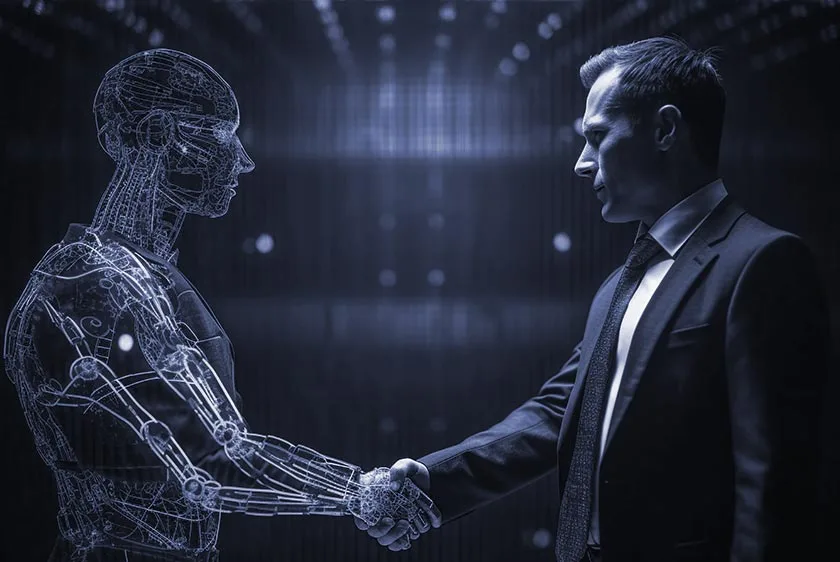Introduction
Artificial Intelligence has become more than a technological revolution—it has evolved into a political, cultural, and moral force shaping the modern world. The intersection of AI with celebrity influence and global governance is redefining leadership, creating a new era where innovation, fame, and ideology intertwine in unprecedented ways.
As nations compete for dominance in AI, the lines between innovation and authority blur. Celebrities endorse tech ethics, governments fund digital infrastructure, and corporations navigate moral dilemmas that once belonged to philosophers. The result is a fascinating power struggle playing out on a global stage.
The Rise of Algorithmic Leadership
Leadership in the digital age is increasingly guided by algorithms. Political campaigns rely on AI to target voters, corporations use data to make executive decisions, and influencers depend on metrics to sustain relevance. Power no longer resides solely in charisma or policy—it exists in code.
This shift challenges traditional leadership values. When algorithms decide what people see, buy, or believe, human decision-making becomes secondary. Governments and organizations now face the moral question of how much control should be delegated to machines, and what it means for accountability in leadership.
Celebrities and the New AI Consciousness
Celebrities have become key voices in shaping the cultural perception of artificial intelligence. From film portrayals to real-world advocacy, their involvement influences how the public understands and accepts AI’s role in society. Figures like Elon Musk and Scarlett Johansson have used their platforms to raise debates about digital ethics, automation, and privacy.
This fusion of celebrity and AI influence extends far beyond pop culture. In global diplomacy, recognizable figures act as intermediaries between innovation and humanity, translating complex technologies into narratives ordinary citizens can grasp. The danger, however, lies in oversimplification—turning intricate ethical debates into digestible headlines.
Political Systems in the Age of Automation
Governments across the world are grappling with the implications of AI-driven governance. From automated border control to algorithmic welfare systems, automation is infiltrating bureaucracy at every level. The promise of efficiency comes at the cost of human empathy and discretion.
In democratic systems, AI introduces new vulnerabilities. Data manipulation can distort elections, while predictive policing risks reinforcing social bias. Meanwhile, authoritarian states are using AI to cement control through surveillance. Politics has become a battlefield for competing philosophies of digital governance.
The Global Economy of Digital Dependence
Economic power is now tied to technological dependence. Nations that lead in AI development control critical infrastructure and intellectual capital. Tech corporations, once commercial entities, have become geopolitical players with influence rivaling entire governments.
This digital dependence has consequences. When major social or cloud platforms face disruption, entire economies tremble. The global reliance on AI-driven systems exposes vulnerabilities that transcend borders. Collaboration between public and private sectors is no longer optional—it is a survival necessity.
Ethical Tensions and the Future of Influence
The ethics of leadership are being redefined by automation. When AI writes news, curates entertainment, and analyzes public mood, who bears responsibility for truth and fairness? The fusion of celebrity advocacy and corporate innovation often overshadows these deeper concerns.
Some visionaries advocate for “responsible AI,” emphasizing transparency and inclusivity. Yet progress often outpaces regulation, leaving societies unprepared for the ethical dilemmas ahead. The next generation of leaders must navigate this complex terrain where fame, technology, and policy intersect with human values.
FAQs
How is AI changing global leadership?
It shifts decision-making from intuition to data-driven logic, giving corporations and technocrats new forms of authority once reserved for elected officials.
Why are celebrities involved in AI discussions?
Their cultural influence helps shape public understanding and emotional response to complex technological issues like automation and ethics.
Can AI replace political leadership?
No, but it can heavily influence it. Governments now rely on AI for analysis, communication, and even decision support, altering traditional leadership dynamics.
What are the economic risks of AI dependency?
Overreliance on automated systems makes economies vulnerable to cyberattacks, software failures, and monopolistic control by tech giants.
How can societies ensure ethical AI governance?
By enforcing transparency, global collaboration, and inclusive policymaking that prioritizes human rights over profit or political gain.
Conclusion
The union of artificial intelligence, celebrity power, and political strategy represents a profound transformation in global leadership. As automation expands, influence becomes less about who speaks the loudest and more about who controls the algorithms that shape perception.
The future of power will be defined by how responsibly humanity integrates AI into its decision-making. True leadership in the digital age will belong to those who can balance innovation with integrity, ensuring technology enhances rather than erodes the collective good.

Leave a Reply